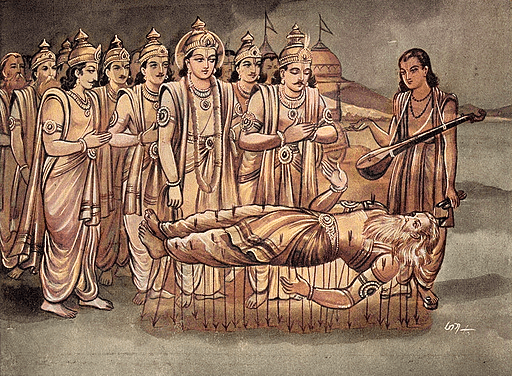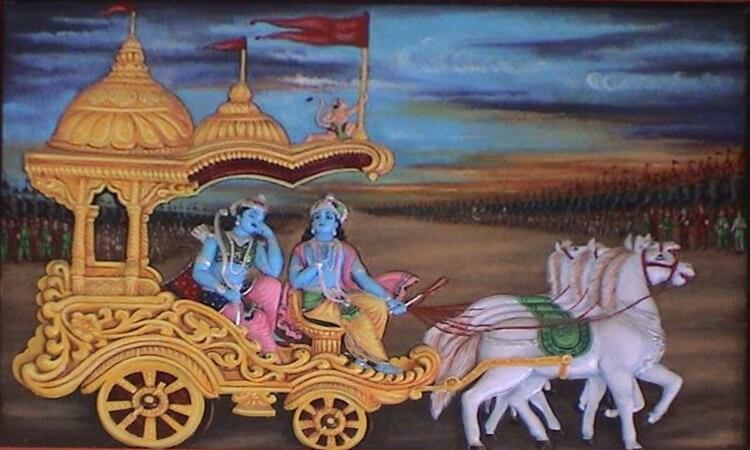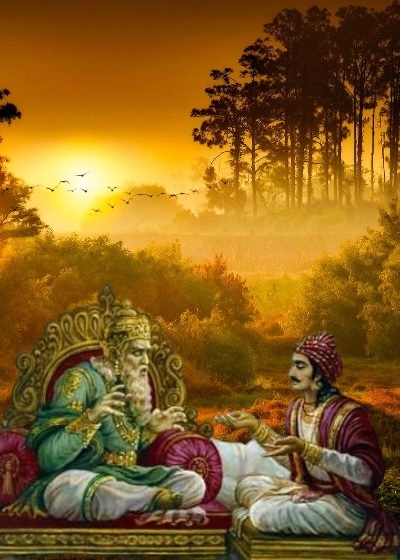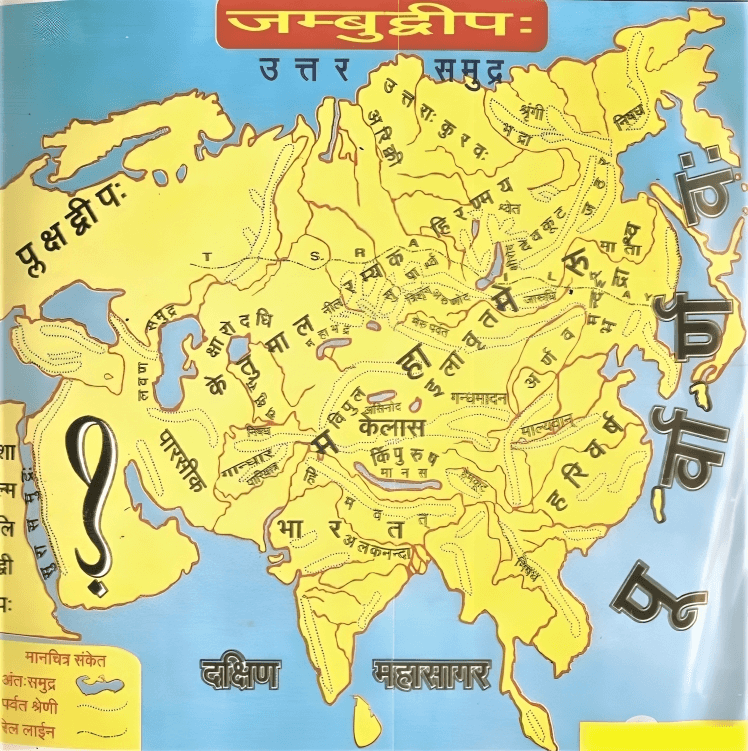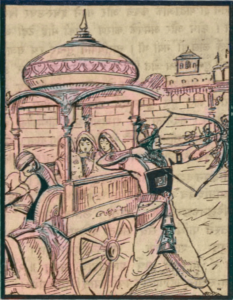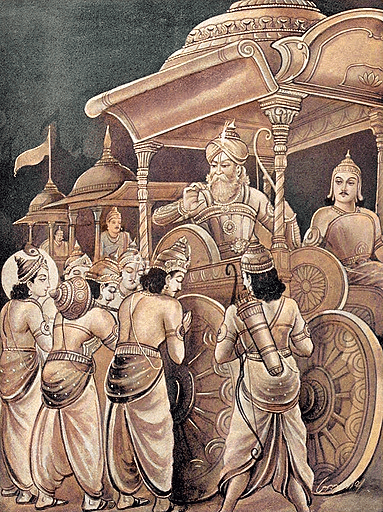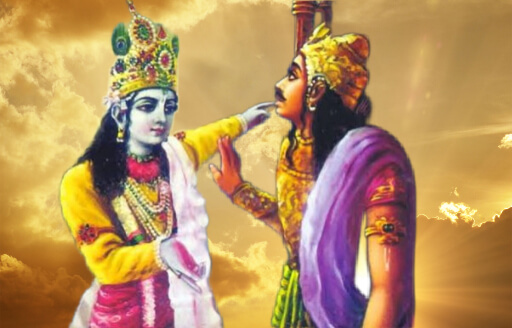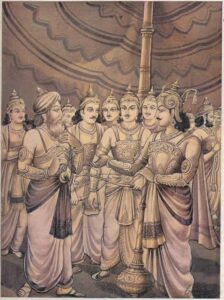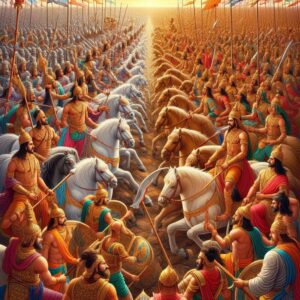Dronabhisheka Parva is the sixty fifth Upa parva included in the seventh Maha parva named as Drona parva. Vaishampayana continued narration to Janamejaya in reply to his queries as follows.
After Bhishma had fallen, who had been suggested to be the commander-in-chief for Duryodhana side army and by whom?
On the eleventh day morning, Karna had visited Duryodhana with his bow and quiver full of arrows along with reserve stock in his chariot, loyally seeking permission to take an active part in the war to satisfy Duryodhana. Duryodhana was very happy and the other soldiers of his regiment also felt overjoyed. So he approached Bhishma for his permissions.
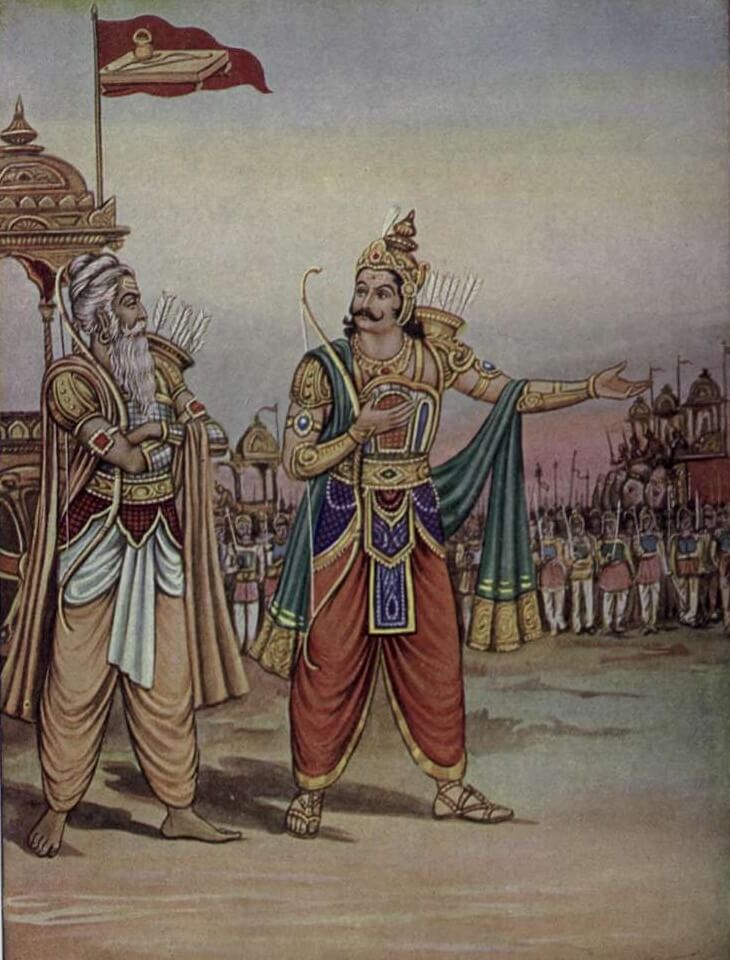
To his surprise, he found Arjuna prostrating before Bhishma there. Bhishma was lying on the bed of arrows. That site was at the side of Kurukshetra battle ground. Duryodhana had managed to dig the protective trenches around Bhishma to the satisfaction of Bhishma. Then Karna suggested Duryodhana to install Drona as the next commander-in-chief for the Duryodhana side army. It was accomplished by Duryodhana immediately.
What Arjuna had done on the eleventh day morning?
With Yudhishtira and other brothers, Arjuna had visited Bhishma in the early morning. Arjuna prostrated before Bhishma and enquired about his comforts but immediately found Karna also behind him. Bhishma had requested Arjuna for drinking water where he was laid up in the battlefield. Arjuna started to fix his bow with some special arrow with concentration on himself. Karna observed him.

